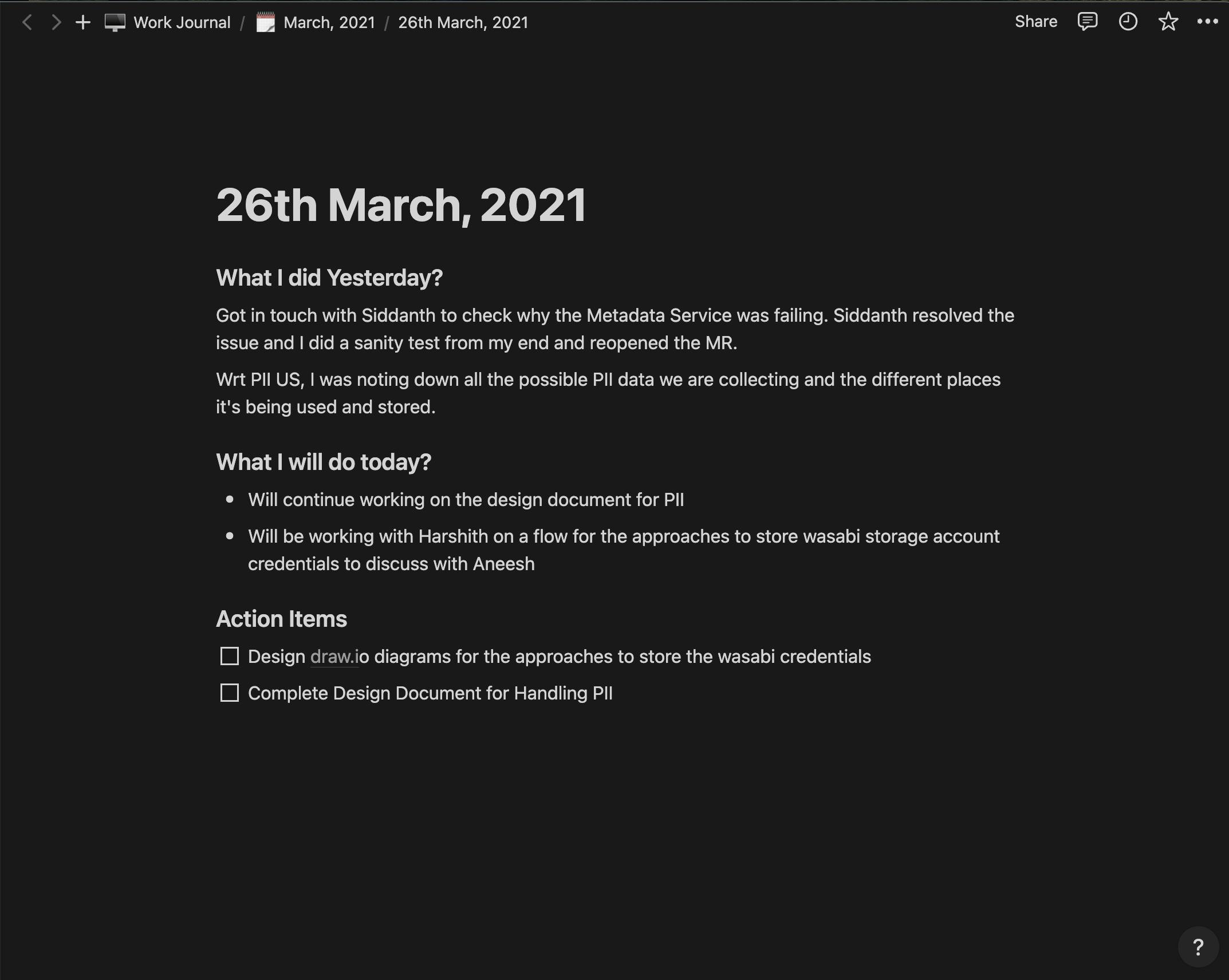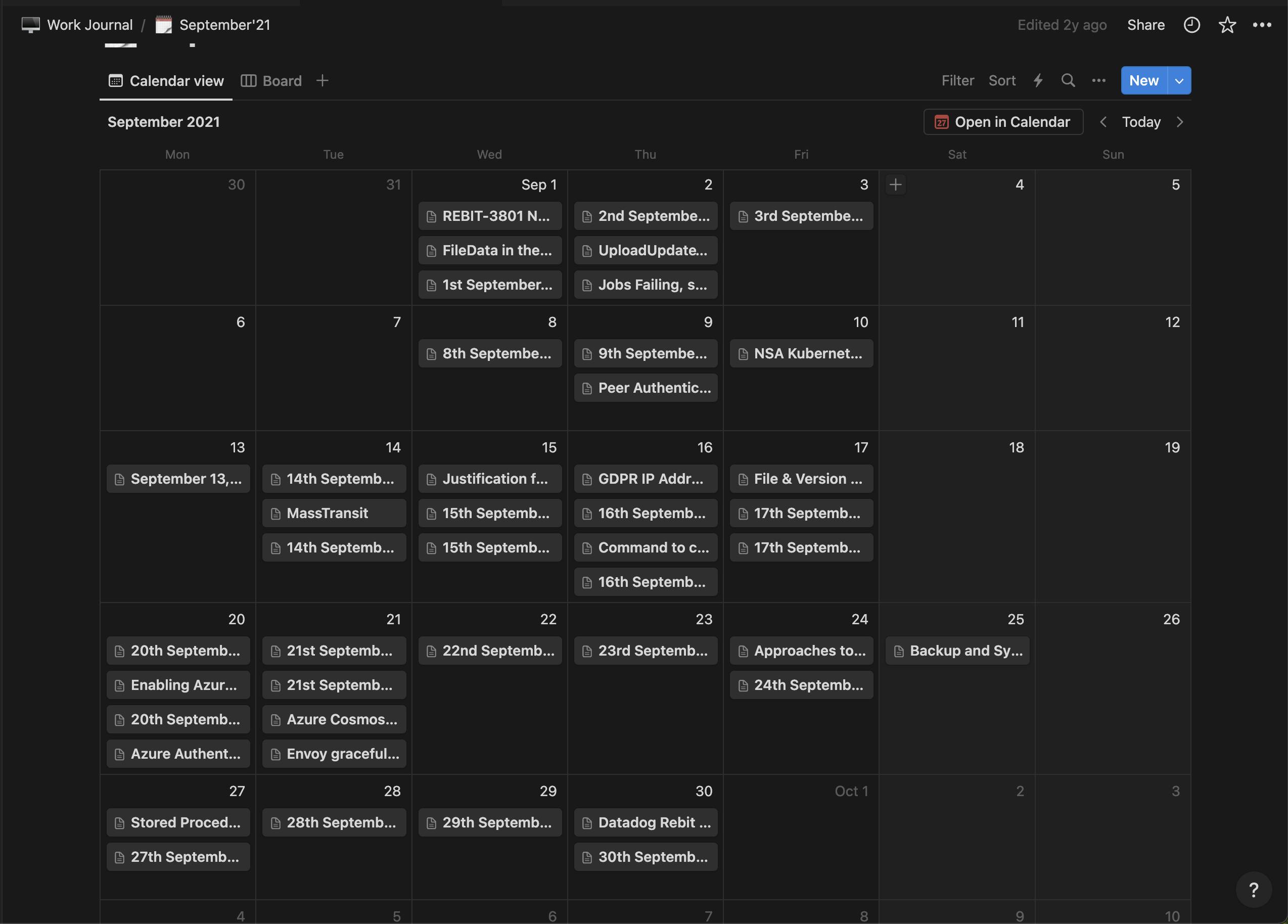My journaling journey using Notion
Enhancing my remote work efficiency and knowledge management
Remote work and daily updates
My career began in 2020 amidst the lockdown, a challenging time for remote work adaptation. Initially, the learning curve was steep due to the lack of in-person interactions. Resolving simple queries involved cumbersome steps: checking availability, sending messages, and hoping for timely responses. Often, the wait for guidance led to either self-resolution or forgotten issues.
The most challenging part was the early morning standup meetings. After working late nights, waking up at 9 AM to share updates was exhausting. I often struggled to articulate my progress and questions. To address this, I started noting down my daily activities and queries using my phone's notes app. This practice allowed me to efficiently communicate during standups, even when partially awake.
Adding some structure
By mid-February 2021, while working on a complex component, I faced the challenge of effectively sharing and recording vast amounts of research, ranging from articles and forums to research papers. Initially, I shared these resources via chat threads, but as discussions expanded, it became difficult to track and retrieve information.
I attempted to organise this information in a Notepad file, but soon faced issues with chronological order and relevance. This led me to explore other tools.
Starting with Notion
I revisited Notion, an app I had previously registered for but seldom used. I created daily pages titled with the date and sections like “What did I do yesterday?” and “What will I do today?” This format provided clarity and ease in tracking my activities and action items. However, after two months, I encountered difficulties in retrieving specific information from the daily records.

Calendars and databases on Notion
To overcome this, I utilised Notion’s calendar database feature, organising daily updates and research into a calendar grid. I adopted descriptive titles for each entry, facilitating easy retrieval through the search function. This system proved highly effective, and I began creating a dedicated calendar database for each month. It became an invaluable resource for recalling solutions and sharing knowledge with colleagues.

My daily routine journaling
I dedicate 15 minutes daily to reflect on my accomplishments and pending tasks. Summarizing discussions and my contributions helps maintain mindfulness about my work and ensures no task is overlooked. This practice has streamlined my morning routine, offering a clear starting point each day.
Sharing knowledge about previously encountered problems and their solutions has become effortless. I am always just a search away from finding and sharing relevant articles or commands with my teammates.
Conclusion
Keeping a work journal is like having a secret work buddy. It's your daily roadmap, highlighting what needs doing and celebrating what you've done. It saves you from those awkward "I forgot" moments in meetings, acting like your own work highlight reel. Plus, it's a fantastic way to see how much you're growing in your job. And when work gets too much? Jotting things down is like a mini stress-buster session. So, in a nutshell, a work journal is your go-to for staying organized, being on top of your game, and keeping cool under pressure.

